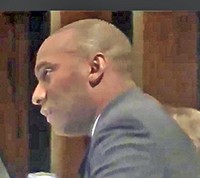The University of Memphis has the most Title IX complaints out of all state agencies in the state — almost three times the amount of other entities reporting.
The purpose of Title IX is to ban discrimination on the basis of sex for “any education program or activity receiving federal financial assistance.” This includes admission consideration, employment, as well as “treatment of students” and “access to programs and courses,” among other things.
In 2023 the University of Memphis reported 125 Title IX complaints to the agency, according to a report from the Tennessee State Comptroller’s office. Other schools included in the report were Austin Peay State University (21 incidents), East Tennessee State University (19 incidents), Tennessee State University (5 incidents), and the University of Tennessee (24).
While U of M reported the most complaints compared to other agencies, the 2023 numbers show a 3.2 percent decrease from the previous year (129.) This is the third year in a row that the university reported the most incidents.
The report does not say why the university has so many reports, or the nature of them. University officials refused to respond to questions about Title IX complaints, including the most basic descriptions of the types of incidents that cause complaints. They also would not say whether complaints were up because of increased knowledge of campus resources.
“The University of Memphis is committed to providing an environment free from discrimination on the basis of sex and provides many resources to students, faculty, and staff to address concerns relating to discrimination on the basis of sex, which includes sexual misconduct,” the university said in a statement.
When asked for public records pertaining to the Title IX complaints, the comptroller’s office recommended the university be reached for “any records related to the cumulative report.”
Students, staff, and faculty can file complaints through the university’s Office for Institutional Equity.
“It should be noted that a complainant has the right to the complaint being handled as confidentially as reasonably possible,” said the university.
Morgan Linsy is a senior at the University of Memphis, and is the executive director of the Sexual Assault Prevention and Awareness Coalition (SAPAC). This organization partners with the Title IX office for events and training such as their Healthy Relationships Fair and “Walk A Mile In Her Shoes” men’s march.
Linsy said her organization is advocating for more transparency regarding Title IX so they can tailor programming and support to best meet the needs of students. She understands the university has to protect victims as she also serves as a mandatory reporter for the university.
“They come to us knowing that what happens is going to stay with us and I think sometimes seeing the numbers can be scary for some people,” Linsy said. “It’s important for us to know what those numbers are, but I think we also have to remember that there still is a certain level of privacy that they’re owed, because at the end of the day they don’t have to report; however, we want them to so we can help bring awareness and see how we can increase resources for students on campus.”
Linsy thinks that transparency in numbers and reporting is important campus-wide for current and prospective students as well.
“If we know what’s happening on campus, we’re more inclined to keep each other aware, keep each other accountable, and make sure we work together to help prevent it all together,” Linsy said.


